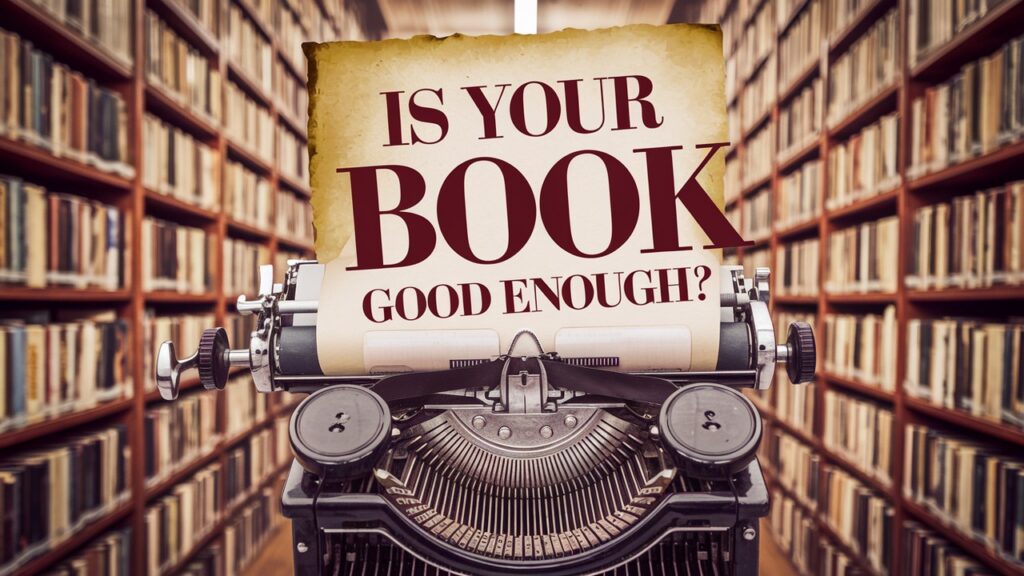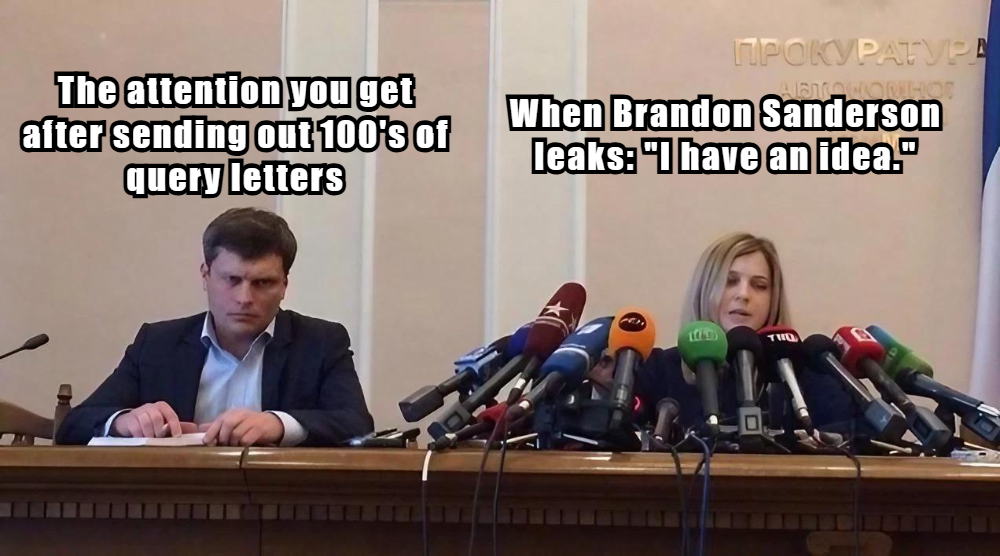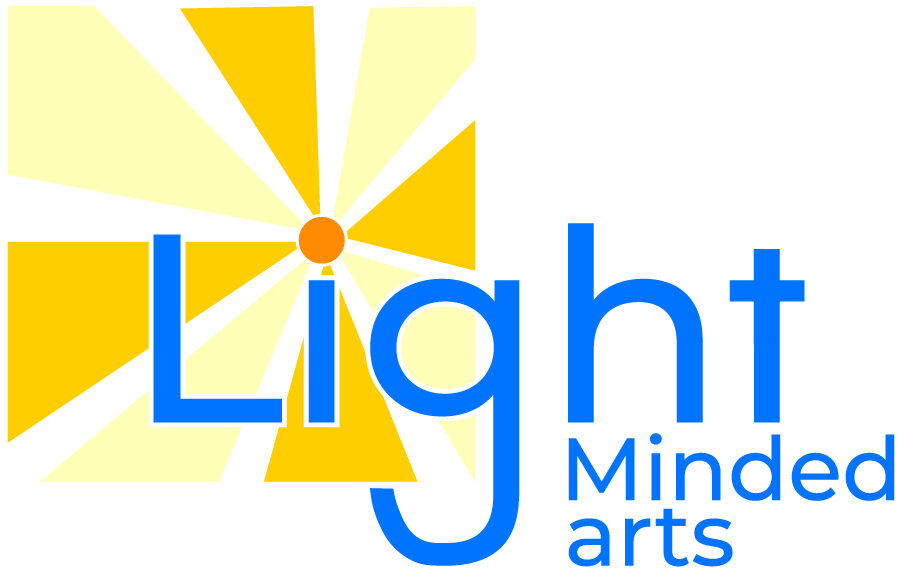
It’s time to publish your book. This is the moment you’ve been waiting for, all your life. Well, maybe not all your life, but surely over the last several months you’ve been looking forward to this day.
Only problem is, you don’t know how to publish it. Do you go the traditional route, of searching for an agent and/or publisher? Or do you self-publish? And how do you do either of those things?
Buckle up, we’re going to discuss traditional publishing today. Check out Part two of this, where we’ll discuss self-publishing.
For now, lets look into today’s landscape for getting an old fashion publishing deal.
Landing a Traditional Book Publishing Deal
Every writer’s dream is to have their book picked up by one of the big publishing companies. The reasons are obvious; you’ll get a lot better marketing and placement of your book if you can manage this.
Getting this sort of deal off your first novel is not likely to happen, unless you have a book that is Earth shatteringly amazing, or very relevant to current events. If you’re just writing a fiction novel, get in line.
The hard part is, that there is a lot less money in traditional publishing than there used to be. It’s still profitable, but like so many forms of media, the gatekeepers are getting sidestepped, and the competition for eyeballs has become overwhelming.
It used to be that if a publisher picked up your book, it was because they believed in it. The manuscripts that weren’t good enough to print, were simply denied. Now days, if your script is denied by a publisher, then you just go on Amazon and self-publish it anyway.
Because of this glut of books on the marketplace, a publisher is going to balance the risk of your book flopping, vs making a profit. So how would you navigate this world? I share with you how I went about it. FYI, my 1st book did not land a publishing deal, but the steps are the same.
Making The Sale
First off, since the publishing landscape is so competitive, you should have already polished your book to near perfection. If you missed my article on editing your first book, go back to my website and read that.
But don’t the publishers have in-house editors?
Research
Yes, but they don’t work for you. They work for the publisher. And if you present your work to them and it isn’t practically perfect in every way, they’re not likely to give you the time of day. They might not even give you a form letter of rejection.
Assuming that your book is squeaky clean, then its time to shop agents and publishers. There are some publishers that will accept submissions without an agent, but not all.
If I were doing this again, I would start by creating a list of agents and publishers that I could submit to. This is a tedious process, involving hours on the internet, and going through books in your genre to find out who published or represented those authors.
Finding the agents and publishers that are willing to take new submissions, takes time, and once you have a good list of who to send your book off to… DON’T!
Quiere

Most agents and publishers aren’t going to want your cold book on their messy desk. Some will take a few sample pages and a synopsis, but many are going to 1st want a query letter.
What is a query letter?
This is a nicely formatted, professional looking document, usually one or two pages long, where you ask the gatekeeper if they will be willing to accept a submission from you. You can give a brief description of who you are, your experience (or more likely inexperience), what your book is about, and don’t forget, how big of a following you already have. If you have a social media following that is sizable, and credible, you might find an easier in than if you don’t. Its almost like a resume.
Remember hearing about log lines? This document is going to be read through very quickly, and decided on very quickly. You need to make this compelling, without resorting to tricks, like perfuming your paper or silly things like that.
Remember, these recipients are busy people, and they want to know very quickly if you’re worth their attention. They won’t ready through a big document.
Synopsis/Sample
If the agents want to see a synopsis or sample of your book, make this concise. The synopsis should not be long, and it should contain spoilers. This is the outline of your story in a short page or two.
The sample could be your first 10 pages or your 1st chapter, to give the agent an idea of how well you can actually write. Remember how I said, make sure your manuscript is polished? This is why. They need to know that you can write, and capture their attention from the very beginning.
Check on each agent or publisher’s preferences. Some might only want a query letter, some might only want that and a synopsis, and some might want all that plus the sample. You need to follow their format for submission, which is why this process can take a lot of time and be very frustrating. It means that each of your submissions must be personalized.
The Deal
Say they liked it, and they offer to represent or publish it for you. Great, you might have just hit the lottery.
If they’re an agent, then they will take it to the publishers they represent. This is not a guarantee that your book will actually find a publisher, but it has passed one gatekeeper, and it stands a much better chance than a non-represented manuscript.
What if the publisher decides to work with you? This is where you can start to dance a little. They’ve decided your book is worth a risk, and you shouldn’t be afraid to negotiate, though, don’t be a douche either. Be respectful, but if they offer you a contract, read through it, and make sure it works for you. It might even be a good idea to have a lawyer who deals with this sort of thing take a look at it, especially if you are unfamiliar with reading such documents.
What are some things I would look for?
I would look for an advance. These aren’t as big as they used to be, so the idea is to get just enough to motivate them to place your book in front of people so they can make their money back.
Check on how long they’ll have the right to publish your book. Say they try, but are unsuccessful at selling your book in the next two years, but you can’t get the rights back for ten. That means that you are stuck, unable to find another publisher or unable to self-publish it yourself till the time is up.
See what rights you’re giving up? International, movie, other.
If everything looks good to you, and that is purely personal, then maybe it’s a good enough deal.
Most Likely Scenario
If you do get a publisher, don’t assume that the game is over. They are going to expect you to do a lot of marketing for them. This will include book signings, readings, and other engagements. In fact, you might wonder if they are doing any marketing themselves, or if they’re just relying on you.
The next thing to know is that if your book doesn’t take off soon, it probably won’t take off at all, and the publisher is likely to cut their losses and move on to more lucrative projects, without releasing your rights back to you. So make sure you know what’s in your contract.
The most likely scenario though, is that your first book isn’t going to be the next best seller. You’re probably still learning the craft, and because of this, your first book is never going to be your best book.
If you feel its still worth publishing, but all you get are crickets, or rejection letters, then all is not lost. There is still the self-publishing route, which isn’t incredibly hard, but there are some things you can do to stack the odds in your favor. For more on that, check out Part Two of Publishing Your 1st Novel.
If you’d like to see the YouTube video that accompanies this, click the link here: https://youtu.be/sB1KElLHbrE

Leave a Reply